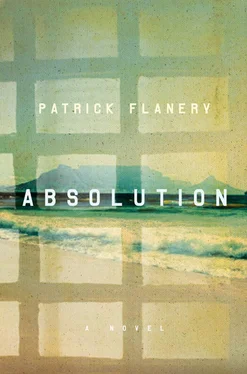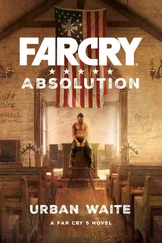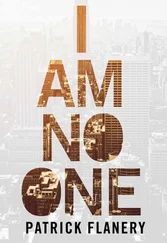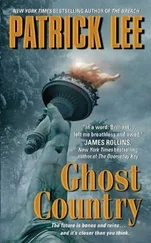She is paler, fiercer. Her words come in a staccato beat, half-read, half-improvised from the notes she holds before her. I look at her long ankles, gnarled sticks protruding from the cuffs of her linen slacks. She turns the page of the notebook and continues.
‘This kind of knowledge requires missteps and bad bruising, even broken limbs. Some are not so quick to adapt, or refuse to do so, and when the battering becomes too severe’—she pauses for a moment, makes a change with her pen, then continues — ‘when their lives (or in the case of these writers, the life of their work ) is placed in mortal jeopardy, then they must flee, go to a shelter, hide themselves away, take on an assumed identity, travel under false papers. I adapted. I came to know my molester as intimately as I knew my husband — perhaps more so. I chose to adapt, to keep my children and myself alive. At least that was the rationalization on which I built my career very specifically as a writer in this country in that historic moment.’
‘Just before the old government was overthrown, you published “Black Tongue”, an essay about censorship.’
‘I think I am too tired to continue today. You will come back tomorrow at the same time?’ She looks up from the notebook, her face somewhere else.
‘Yes, if you wish.’
‘I do not wish. But I fear that now this has started, I cannot stop you.’
Marie appears from another room. She’s been listening and leads me to the front door. She opens the gate at the end of the drive, waits until I’ve reversed the car into the street, and closes it again.
When I arrive back at Greg’s, I find an email waiting for me:
Dear Dr Leroux,
Further to your previous message, I do entirely understand that my mother has, quite unwisely, given her consent for you to write her official biography. I do not know whether this was her idea or yours or her publisher’s, but that is irrelevant anyway. Why you in particular have been contracted to carry out this ill-conceived project is my real concern. Perhaps I know more of your reputation for exaggeration and character assassination than my mother or her representatives do.
I can do nothing to stop you telling the story of her life so long as she cooperates, but I counsel you in the strongest possible terms to attempt no depiction of my father, my sister or myself. I speak in an official capacity for my father, Professor William Wald, and can only assume to speak for what my sister Laura would wish. My mother is a duplicitous and self-serving woman who says whatever she thinks will make her appear in the best light. She is vain of person and vainer still of reputation. Her statements about her children — myself in particular — are not to be trusted. I hope I make myself clear.
I categorically deny you permission to publish this letter in any form or to forward it to any third party.
Yours sincerely,
Mark Wald
*
Next day. Every time that I’ve arrived at Clare’s house, Marie has said nothing to me. Today, however, she makes a sound, a grunt of irritation, and leads me down the corridor past the reception room where the first interviews were conducted to a door at the back of the house. There isn’t anything remarkable about the rooms we pass. They don’t suggest the daily haunts of a writer. Everything is antiseptically clean. It looks too uncluttered to be the home of a mind as complicated as Clare’s. I was expecting random collections of books and ornaments, stacks of newspapers and ephemera, as in the over-stuffed apartments of bohemian academics I’ve known in New York. Instead, this house looks like it came to life out of a design magazine.
Marie knocks twice. She looks at her watch. Thirty seconds pass, and then she opens the door to a bright room. Two of the walls are glass. They meet in the corner opposite the door, giving views of the garden, and the high rocky slopes rising precipitously behind the house. The other walls are lined with bookshelves, the volumes all flush in a line. Marie gestures towards a couch where I sit as she leaves, closing the door behind her. I’m tempted to examine the bookshelves, but guess that this — being left alone in what is obviously Clare’s study — is a test of my trustworthiness. A moment later one set of bookshelves swivels across the floor and Clare emerges from an adjoining room.
She looks more relaxed today, dressed in a long white smock and blue slacks, her hair loose around her face, feet bare. She sits behind her desk. Intimacy, but mediated. Without looking at me, she pages through her desk diary. After a moment she says, ‘Yes? All right.’ I turn on the voice recorder, uncap my pen, and open my notebook.
‘Yesterday, I was beginning to ask you about “Black Tongue”.’
‘Yes.’ She still looks down, turning the pages of her diary.
‘You write movingly about the effects of censorship on writers. I wonder if you could speak at a more personal level, about the ways in which the possibility of censorship affected your own writing?’
Her lips part and she blows out a stream of air. Adjusting the diary so that it is square on the desk, she turns the pages, but I think I see her glancing peripherally at the garden, where a man is pruning an already compact-looking bush whose name I don’t know, though I can recognize it as some kind of indigenous shrub. Such plants should make me feel at home, but their musky, wild animal smell always catches me by surprise, like a mugging.
‘I would have thought that the essay could be read either personally or impersonally — relevant either to all writers who find themselves working under the threat of censorship, or just one particular writer,’ she says, punctuating the sentence with a distracted cough that I’m beginning to recognize as one of her conversational tics — the cough, the snort, the involuntary throat-clearing.
‘Are you inviting me to read it that way?’ I hesitate in asking a question like this; I know she resists being asked to interpret her own words. A colleague of mine once wrote to ask Clare what she meant by a particular passage in one of the novels that referred obliquely to Sophocles. She responded politely but firmly, ‘The sentence says …’ and quoted the line verbatim without further comment. The text spoke the meaning, and she could or would do nothing to explain it.
‘It would be ridiculous not to read it that way, given what I have just said.’
‘You argue that institutionalized censorship tends to empower individuals with “unsubtle minds” and that the ideal censor, if censorship must be practised, would be someone like yourself — reflective, academic, widely read, a rationalist, someone with an objective mind.’ Her eyes flicker briefly up to mine, as if to say, Don’t even try, flattery is futile . She puts away the diary and begins shuffling papers on her desk, moving them from one pile to another. It’s a game to show me that I’m unimportant, that her mind needs more to occupy it than my facile questioning.
‘I don’t think those are quite my words, but yes, broadly, that was my argument,’ she finally says, giving me another quick glance before looking down again, absorbed by a pile of recycled envelopes.
‘The problem, you say, is that people like you would never choose to be a censor, because there could be no more painful work than being forced to read works — books, magazines, articles, poems — not of your own choice. And one would think, also, that it would be anathema to a writer — particularly one like yourself — to have to ferret out offensive works and bar their publication.’
‘If one could ever agree on a universal standard of offence.’ A little cough again, clearing the throat, and a surprising, girlish toss of the hair, another peek at the gardener and a tight pursing of the lips. She opens the window, calls out to the man in words I don’t understand. They’re full of politeness, and a smile that looks genuine spreads across her face as she bows her head. The gardener responds, smiles (not so genuinely, I think), bows his own head and leaves the shrub alone.
Читать дальше












